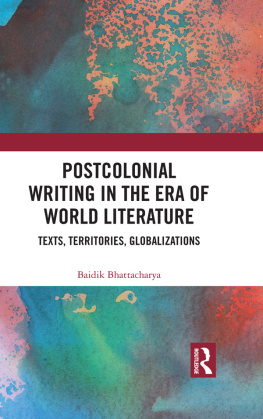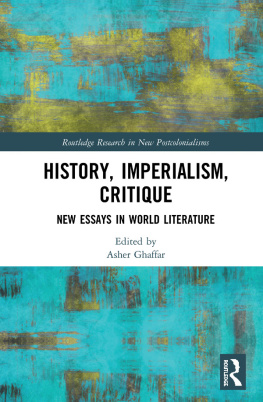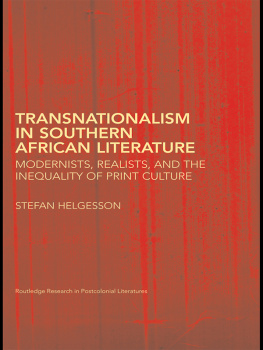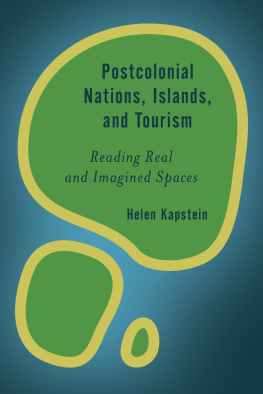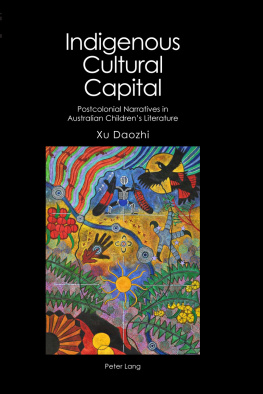First published 2018
by Routledge
2 Park Square, Milton Park, Abingdon, Oxon OX14 4RN
and by Routledge
711 Third Avenue, New York, NY 10017
Routledge is an imprint of the Taylor & Francis Group, an informa business
2018 Baidik Bhattacharya
The right of Baidik Bhattacharya to be identified as author of this work has been asserted by him in accordance with sections 77 and 78 of the Copyright, Designs and Patents Act 1988.
All rights reserved. No part of this book may be reprinted or reproduced or utilised in any form or by any electronic, mechanical, or other means, now known or hereafter invented, including photocopying and recording, or in any information storage or retrieval system, without permission in writing from the publishers.
Trademark notice: Product or corporate names may be trademarks or registered trademarks, and are used only for identification and explanation without intent to infringe.
British Library Cataloguing-in-Publication Data
A catalogue record for this book is available from the British Library
Library of Congress Cataloging-in-Publication Data
A catalog record has been requested for this book
ISBN: 978-1-138-55995-0 (hbk)
ISBN: 978-0-429-46772-1 (ebk)
Typeset in Garamond
by Apex CoVantage, LLC
Contents
Guide
Every book owes its existence to a group of interlocutors and well-wishers, and for a book that has been in gestation for long this list only increases in length. So is the case with this book. Over the years, I have been discussing parts of it with a broad range of friends, colleagues, and students, and, in hindsight, I can see how much I have benefitted from these conversations. My greatest intellectual debt is to my mentor Rajeswari Sunder Rajan. Her unassuming style, incisive scholarship, and personal generosity set the bar very high from the beginning; and this book, quite literally, would have been impossible without her continued support and inspiration. I have been extremely lucky to have some exceptional teachers and their mark, I hope, would be evident enough in the following pages Rajeev Bhargava, Neeladri Bhattacharya, Bholanath Dasgupta, Ania Loomba, Franson D. Manjali, and Robert J.C. Young. I have also benefitted from my discussions over the years with a group of scholars who are not my teachers formally, but who have taught me a lot through their conversations and writings: Sibaji Bandyopadhay, Dipesh Chakrabarty, Gayatri Chakravorty Spivak, Partha Chatterjee, Sukanta Chaudhuri, Supriya Chaudhuri, Tapati Guha-Thakurta, Sudipta Kaviraj, and Udaya Kumar.
I would like to thank the following for their careful reading and useful feedback on various parts of the book G. Arunima, Sayandeb Chowdhury, Patricia Hayes, Aamir R. Mufti, Sambudha Sen, Bodhisattva Kar, Udaya Kumar, Rajeswari Sunder Rajan, Mallarika Sinha Roy, and Sanil V. I have benefitted immensely from their scholarship and generosity. All shortcomings, needless to say, are mine alone.
The research for this book has been done at various libraries of the Universities of Oxford, Newcastle upon Tyne, and Delhi. My sincere thanks to all the brilliant library staff of these institutions.
It has been my good fortune to have wonderful colleagues all along my professional life, with whom I could share not only my ideas but also my excitement about the academic life. At the University of Newcastle upon Tyne, I was particularly fortunate to have Linda Anderson, Michael Pincombe, James Procter, Jennifer Richards, Neelam Srivastava, and Terry Wright as colleagues. At the University of Delhi, I am particularly indebted to Udaya Kumar and Sambudha Sen they welcomed me in the intellectual life of Delhi and also provided the vital support system during difficult times. I also feel lucky to have the intellectual friendship of the following colleagues at Delhi: Tapan Basu, Rimli Bhattacharya, Shirshendu Chakrabarty, Nandini Chandra, Subarno Chattarji, Priya Kumar, Raj Kumar, Rochelle Pinto, and Ira Raja.
It is almost impossible to sustain an academic life without friends, and I want to take this opportunity to thank them all at Oxford: Prathim-Maya Dora-Laskey, Stuti Khanna, Rayhan Rashid, Manav Ratti, Swagato Sarkar, Neelam Srivastava, Nowrin Tamanna, Joy Wang, and Manmay Zafar. And, in keeping with the international community of friends: P.K. Yasser Arafat, Prathama Banerjee, Anna Bernard, Sayandeb Chowdhury, Rajarshi Dasgupta, Veena Hariharan, Bodhisattva Kar, Aishwary Kumar, Premesh Lalu, Aditya Nigam, and Nivedita Sen.
I was lucky enough to have Nitasha Devasar and Shoma Choudhury as my editors at Routledge. Their professional care and interest in the book has been exemplary. I would also like to thank all the support staff at Taylor and Francis for their help and support. I would also like to take this opportunity to thank the two anonymous reviewers for Routledge, whose encouraging words and good-natured criticism of the manuscript have been extremely helpful in preparing the final version.
The bedrock of my life has been my parents, Swapna and Banabir Bhattacharya. Their support has seen through not only this book but also much else in my life this book is for them. The wider support network also includes my parents-in-law, Prabir Sinha Roy and the late Suhita Sinha Roy, and also my extended family in both Jalpaiguri and Kolkata.
And finally, my partner in crime, Mallarika Sinha Roy, who is as much responsible for this book as I am.
Sections from were published in an earlier version in Novel: A Forum on Fiction ( Duke University Press).
Postcolonial Writing in the Era of World Literature
This book explores the debates surrounding two dynamic fields postcolonial studies and world literature. Contrary to many dominant narratives in critical theory, it asserts that as an analytical framework the idea of world literature is dead: the nineteenth-century ideal of world literature had always and already been embedded in colonial histories; and also because whatever promise that ideal held out has been exhausted by postcolonial Anglophone literature. Through fresh and incisive readings of the postcolonial canon and some of its most prominent authors like Rudyard Kipling, V.S. Naipaul, J.M. Coetzee, and Salman Rushdie, the volume discusses how these Anglophone writings have used the banal and ordinary ideal of world literature to fashion out their own trajectories.
Ambitious in scope, this book challenges many of the existing theoretical and literary frameworks and offers a radical reimagination of the fields. The volume, written in an accessible and lively prose, will be indispensable for scholars and researchers of literature, critical theory, postcolonial studies, cultural studies, and comparative literature.
Baidik Bhattacharya is Assistant Professor at the Department of English, University of Delhi, India. He was previously a Lecturer of English Literature at the University of Newcastle, UK (200610). He is the co-editor of The Postcolonial Gramsci (Routledge, 2012). His essays have appeared in Critical Inquiry, New Literary History, Boundary 2, Novel: A Forum on Fiction, Interventions, and Postcolonial Studies among other places. He also serves on the editorial board of the journal Postcolonial Studies.
4
Minority Report
[T]o be rejected and reviled by, so to speak, ones own characters is a shocking and painful experience for any writer.
Salman Rushdie, In Good Faith (1990)
David Damrosch has noted that in the postcolonial hypercanon, as attested by MLA Bibliography Articles entries between 1984 and 2003, Salman Rushdie not only eclipses any other author, he even seems set to become the Shakespeare of postcolonial literary studies. No doubt this is partly because of his success in producing a new kind of diasporic novel since the early 1980s that seems to strike a chord with what he believes to be our increasingly post-modern and post-imperial times. The achievement is evident in his repeated success with the Booker Prize for his second novel Midnights Children (1981), as also in its genre-defining influence on contemporary Anglophone writing. More crucially, however, Rushdie achieved global fame (and notoriety) when his fourth novel, The Satanic Verses (1988), was declared an affront on Muslims and when it became embroiled in a geopolitical crisis of unprecedented magnitude. Suddenly, a novel and its author, coupled with a religious edict and large-scale protest across continents, came to dominate international headlines; as one of the early commentators, Jean-Claude Lamy, noted:

